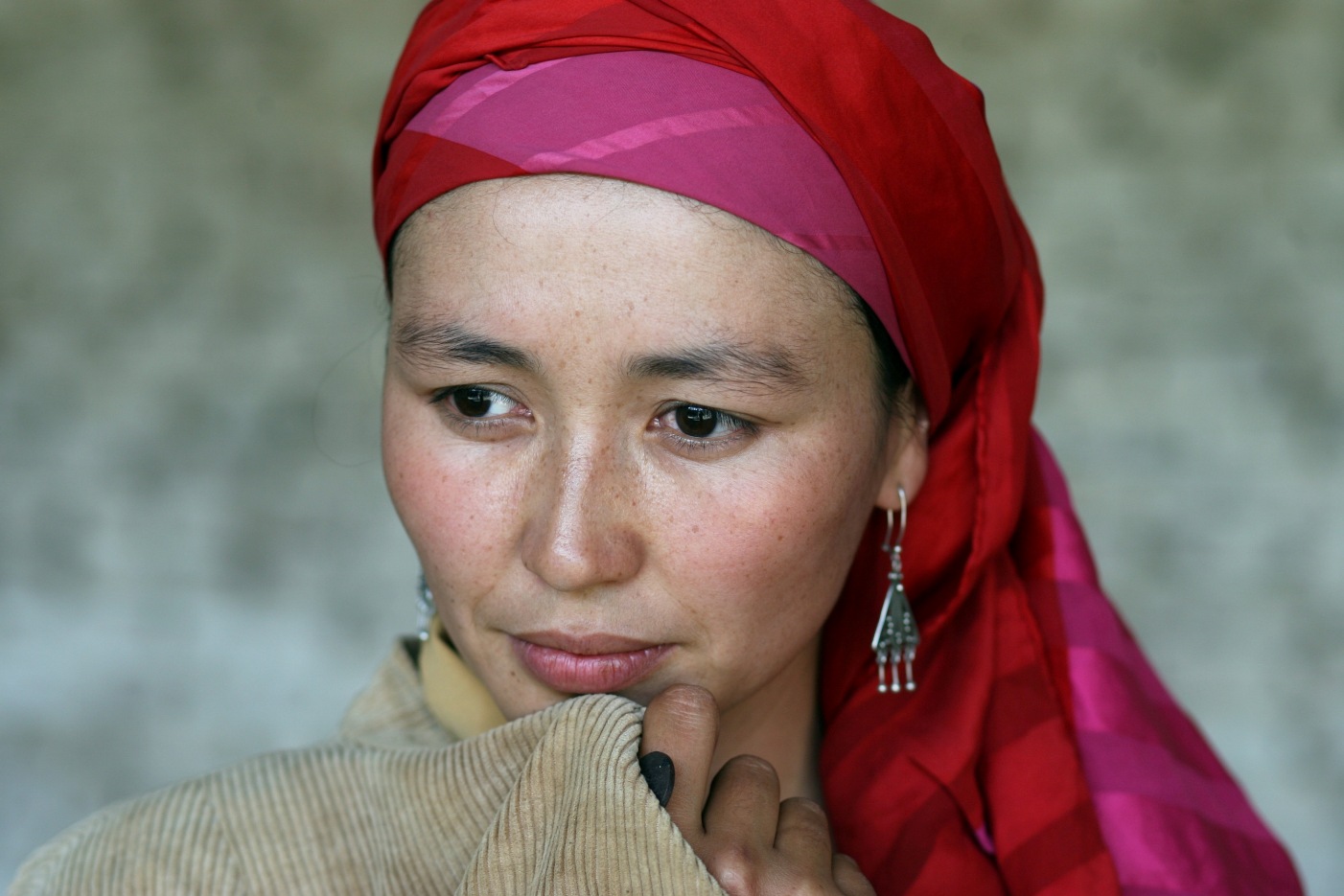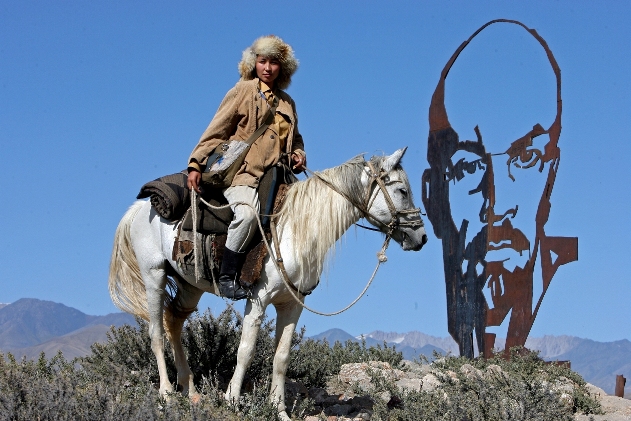There are a few things to be said in favour of Marie-Jaoul de Poncheville’s Tengri: Blue Heavens, one must accept. The basic narrative, of love and longing, has a timeless universality that translates easily across temporal borders; the exquisite cinematography of the Central Asian steppes, where the story is largely set, gives the film a suitably melancholic air. But its principal fault, unfortunately, runs through the entire film and undoes all the good intentions of the filmmaker: it is never, one is obliged to concede, a very good idea to mistake ethnography for storytelling.
Said story, essentially, runs thus: Temur, a wanderer, returns to his ancestral homelands and falls in love with Amira, who just happens to be the headstrong young wife of an oft-absent and inattentive mujahideen. Amidst the agrarian preoccupations of the remote community, mutual attraction is immediate, and is immediately problematic. For the greater good, the two must flee to find their destiny. And that, give or take a couple of drunken episodes and a lots of drunk milk, is that.

Because De Poncheville’s film is so rooted in the exotic apartness of its principals and location, whatever charm that Tengri – Kyrgyzstan’s submission for the 2009 Academy Award’s best Foreign Language Film category – might otherwise possess is dissipated by an absolute absence of contextual depth. Dialogue is laconic and sparse, and the mise en scene teeters on the edge of misplaced social concern. There are a few moments of inspiration: Taib, Amira’s doting brother-in-law has a tender presence, and a brief, irresistible turn by her scornful mother provides genuine comedy.
But on the whole, Tengri is flawed from the onset, and drags the carcass of misplaced good intentions around for a full hour and a half. What presumably was intended to present as oblique yet thoughtful, in fact actualises as opaque and misjudged. A pity, that; the few moments of inspiration, when they emerge, do hint at real possibilities.
Tengri: Blue Heavens (2008, 96 min, Kirghiz and Russian with Hebrew subtitles)
Directed by Marie Jaoul de Poncheville
Tengri is currently showing in Israeli theatres.






